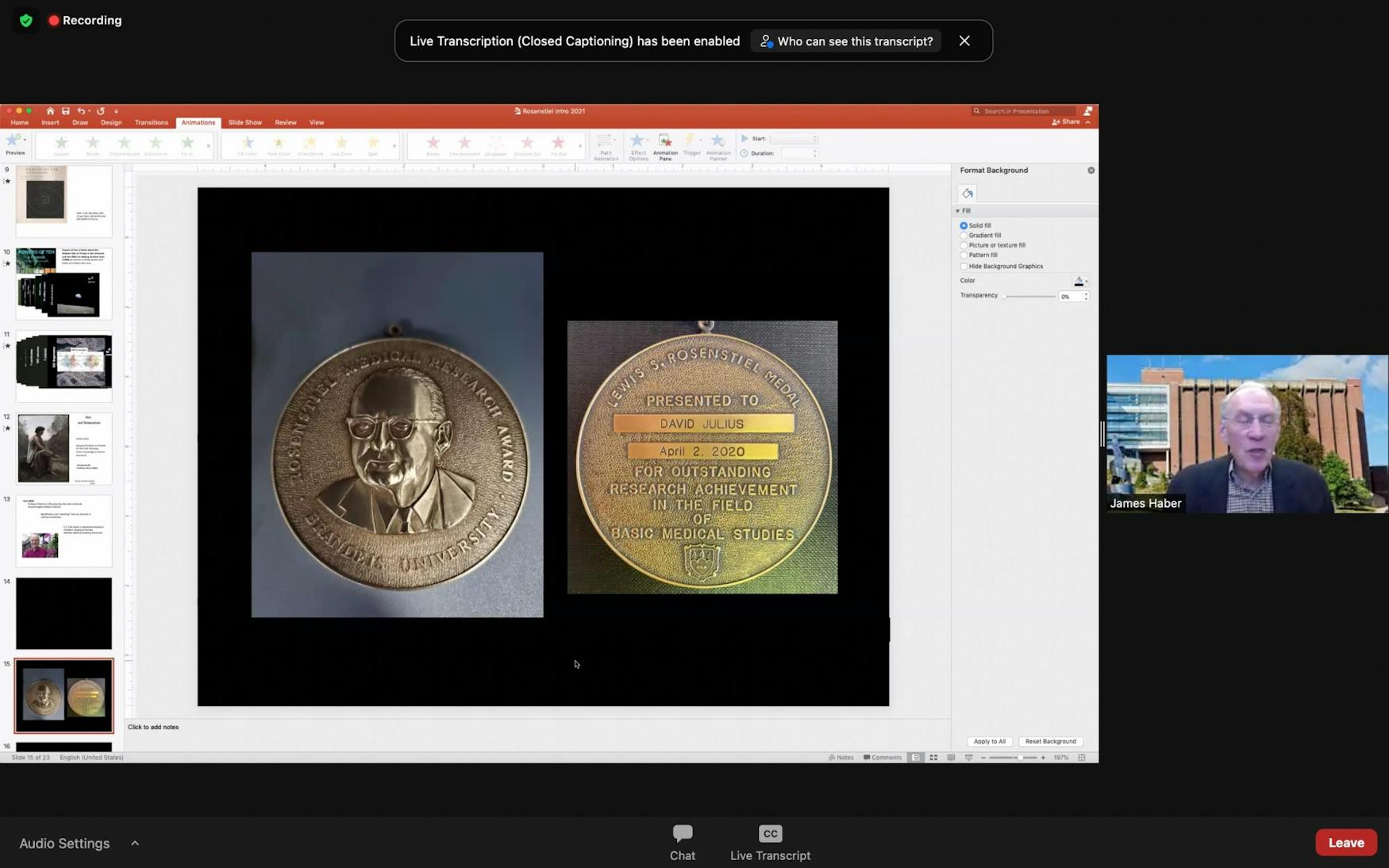University honors scientists with the 49th Lewis S. Rosenstiel Award
Dr. David Julius and Dr. Ardem Patapoutian received the award at a ceremony on Oct. 12.
On Oct. 12, the University held the 49th Lewis S. Rosenstiel Award ceremony virtually, honoring Dr. David Julius and Dr. Ardem Patapoutian “for their remarkable contributions to our understanding of the sensations of temperature, pain and touch.”
Julius and Patapoutian received the award in 2019; however, due to COVID-19, the April 2020 award ceremony was postponed to last week. The award, fully named Lewis S. Rosenstiel Award for Distinguished Medical Work in Basic Medical Research, was first given in 1971, and recognizes important advancements in fields related to medicine, biology and physiology.
The ceremony for the 2020 winners, Dr. Katalin Karikó and Dr. Drew Weissman ’81, was held over Zoom as well, in spring 2021. Karikó and Weissman received the award for their work in “the modification of nucleic acids to develop RNA therapeutics and vaccines.” The ceremony for the 51st winners, who will be announced later in 2021, will be held in the spring of 2022.
University President Ronald Liebowitz opened the ceremony, welcoming Prof. James Haber (BIO) and Prof. Emeritus Christopher Miller (BCHM), to introduce the two awardees. Haber has been at Brandeis for five decades and has done award-winning research in the field of genetics, Liebowitz said.
Haber explained that the Rosenstiel Award has frequently been a pathway to a future Nobel Prize. Of the 50 winners, 36 later received a Nobel Prize, at an average of nine years after receiving the Rosenstiel Award, Haber said.
The current two awardees were no exception to this trend; both scientists were jointly awarded the Nobel Prize in Physiology or Medicine in 2021 for the same research they were congratulated for in this award.
Julius and Patapoutian both conducted research which examined what molecular mechanisms are responsible for certain senses, specifically heat and touch. Both scientists’ labs made similar discoveries independent of each other at around the same time.
While many senses, such as sight and sound, are confined to singular body parts, touch and the associated feeling of pain can be felt all over the body. This is, in part, why touch is the last sense which scientists have been able to understand — and the work, while advanced by Julius' and Patapoutian’s research, is far from over.
Julius’ lab determined which receptors in the body cause the pain associated with consuming capsaicin, the molecule which creates the feeling of spiciness. Prior to his discovery, it was not known exactly how capsaicin caused pain.
Patapoutian and Julius both used menthol similarly to capsaicin as a way to determine which chemical pathways were being used to cause the “cool” sensation from menthol.
Patapoutian’s research also focuses on how the sense of touch works –– in other words, what pathways the signal from a touch takes to the brain.
Both researchers’ work have potential applications in fields such as chronic pain treatment, where understanding neural receptors is necessary in order to create effective treatments.
Julius is currently the chair of and a professor in the department of physiology at the University of California, San Francisco, where his award-winning research was conducted. Patapoutian is an investigator at the Howard Hughes Medical Institute and professor of neuroscience at the University of California, San Diego.



Please note All comments are eligible for publication in The Justice.